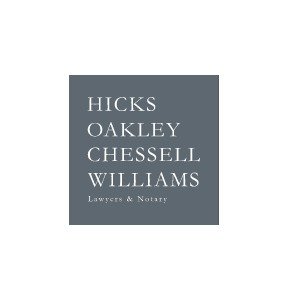Best Conveyancing Lawyers in Melbourne
Share your needs with us, get contacted by law firms.
Free. Takes 2 min.
Free Guide to Hiring a Real Estate Lawyer
List of the best lawyers in Melbourne, Australia
About Conveyancing Law in Melbourne, Australia
Conveyancing is the legal process of transferring ownership of real estate from one party to another. In Melbourne, Australia, conveyancing covers all the legal and administrative work required to ensure a property transaction is properly completed and meets all regulatory requirements. This encompasses tasks like preparing documentation, conducting title searches, handling settlement, and ensuring the property is transferred free of encumbrances. Whether you are buying or selling property, the conveyancing process is crucial for protecting your interests and complying with Victorian property laws.
Why You May Need a Lawyer
There are several situations in which you may require legal assistance with conveyancing in Melbourne. Property law can be complex, and mistakes can be costly. Common scenarios where legal help is beneficial include:
- Buying or selling a residential or commercial property
- Dealing with off-the-plan purchases and developer contracts
- Transferring property due to family agreements or divorce settlements
- Handling disputes over boundaries, easements, or encumbrances
- Navigating deceased estate transfers or inheritance issues
- Ensuring compliance with foreign buyer restrictions or stamp duty concessions
- Managing GST and tax implications for investment properties
Engaging a lawyer who specializes in conveyancing can safeguard your rights and streamline the process, helping you avoid delays and legal pitfalls.
Local Laws Overview
Conveyancing in Melbourne is governed by a combination of state-level legislation and local council regulations. The main legislative framework includes:
- The Sale of Land Act 1962 (VIC) which sets out requirements for contracts and disclosures
- The Transfer of Land Act 1958 (VIC), covering land registration and certificate of title procedures
- The Subdivisions Act 1988 (VIC) for subdividing land and buildings
- The Owners Corporations Act 2006 (VIC) that applies to strata or community title properties
- Various local council planning and zoning requirements
Melbourne conveyancing also requires compliance with foreign investment rules, stamp duty laws, Goods and Services Tax (GST) on certain property types, and obligations to clear outstanding rates and taxes before settlement. Disclosure of property defects, material facts, and any restrictions on the property must be made at the appropriate stages of the conveyancing process.
Frequently Asked Questions
What is the role of a conveyancer or property lawyer in Melbourne?
A conveyancer or property lawyer manages the legal and administrative aspects of buying or selling property, ensuring all laws and regulations are followed, documents are correctly prepared, and the transfer is legally valid.
Do I need a lawyer or can I use a conveyancer?
While both lawyers and licensed conveyancers can conduct standard conveyancing work, a lawyer is recommended for more complex matters, such as when legal advice, dispute resolution, or contract negotiation is required.
How long does the conveyancing process take?
Typically, the process takes between six to eight weeks from signing the contract to settlement, but this can vary depending on the complexity of the transaction and any issues that arise.
What searches are conducted during conveyancing?
Searches may include title searches, planning and zoning certificates, building approvals, land tax, rates, and water authorities searches. These help uncover any legal or financial issues related to the property.
What is a Section 32 Statement?
A Section 32 Statement, or Vendor’s Statement, is a legal document provided by the seller disclosing key information about the property, such as easements, covenants, rates, and any encumbrances on the title.
Who pays stamp duty, and how much is it?
The buyer is responsible for paying stamp duty, which is calculated based on the property’s value and type. Concessions and exemptions may be available for certain buyers, such as first home owners.
What happens on settlement day?
On settlement day, legal ownership is transferred from the seller to the buyer, all remaining financial adjustments are made, and the title is updated with the Land Titles Office. The buyer’s lender, if any, will also provide payment funds at this time.
Can I pull out of a property contract?
Buyers in Victoria have a three-business-day cooling-off period for most residential purchases. After this, withdrawing from a contract without a valid legal reason may result in penalties or loss of the deposit.
What should I check before buying property off-the-plan?
It is important to review the developer’s reputation, check contract terms, ensure timelines are realistic, and understand your rights regarding delays or changes to the plan. Specialist legal advice is strongly recommended for these purchases.
Is electronic conveyancing available in Melbourne?
Yes, electronic conveyancing through platforms like PEXA is widely adopted in Melbourne, offering faster settlements and streamlined processes for both buyers and sellers.
Additional Resources
For further information and assistance with conveyancing in Melbourne, you may find the following resources helpful:
- Consumer Affairs Victoria - Provides guides on buying and selling property, and explains rights and responsibilities in conveyancing
- Victorian Legal Services Board and Commissioner - Offers information on finding licensed conveyancers and lawyers, and what to expect from their services
- Land Use Victoria - The authority responsible for land titles, registrations, and property searches
- Law Institute of Victoria - Professional body for solicitors, with a directory to help you find an accredited property lawyer in Melbourne
- Australian Taxation Office - For guidance on GST, stamp duty, and capital gains tax obligations when buying or selling property
Next Steps
If you are considering, or are in the process of, buying or selling property in Melbourne, the following steps can help you protect your interests:
- Contact a qualified conveyancer or a property lawyer early to guide you through the process
- Gather all relevant documentation about the property, such as title deeds, planning certificates, and any correspondence with your lender
- Get clear on the key dates and milestones for your transaction, including contract exchanges, the cooling-off period, and settlement
- Ask your legal representative about any special conditions, disclosures, or legal risks before signing anything
- If you have a unique or complex situation, such as buying off-the-plan or dealing with a deceased estate, ensure your lawyer has experience in that area
Professional advice can make a significant difference in ensuring your property transaction is smooth, secure, and legally sound. If in doubt, seek legal advice specific to your circumstances.
Lawzana helps you find the best lawyers and law firms in Melbourne through a curated and pre-screened list of qualified legal professionals. Our platform offers rankings and detailed profiles of attorneys and law firms, allowing you to compare based on practice areas, including Conveyancing, experience, and client feedback.
Each profile includes a description of the firm's areas of practice, client reviews, team members and partners, year of establishment, spoken languages, office locations, contact information, social media presence, and any published articles or resources. Most firms on our platform speak English and are experienced in both local and international legal matters.
Get a quote from top-rated law firms in Melbourne, Australia — quickly, securely, and without unnecessary hassle.
Disclaimer:
The information provided on this page is for general informational purposes only and does not constitute legal advice. While we strive to ensure the accuracy and relevance of the content, legal information may change over time, and interpretations of the law can vary. You should always consult with a qualified legal professional for advice specific to your situation.
We disclaim all liability for actions taken or not taken based on the content of this page. If you believe any information is incorrect or outdated, please contact us, and we will review and update it where appropriate.

















